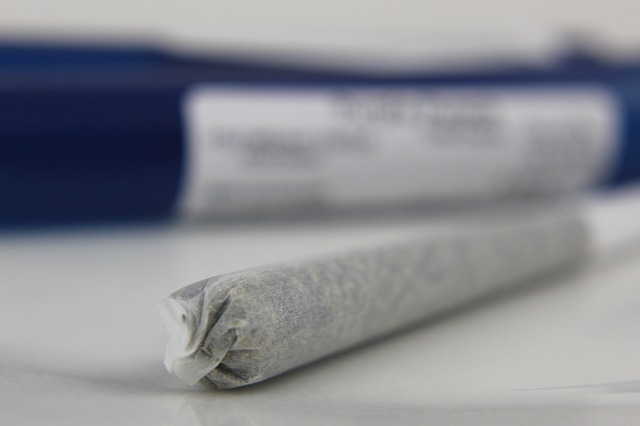As the latest research showed, chronic pain sufferers replaced prescription painkillers with cannabis. Researchers from the University of British Columbia and McGill University in Canada, as well as researchers from the University of California in Los Angeles, decided to use the data collected to understand whether cannabis serves as a potential substitute for illicit opioids.
Study reports daily use of cannabis reduces the use of opioids


Several studies have shown that chronic pain sufferers are replacing prescription painkillers with cannabis. According to the latest research conducted this week, the daily use of cannabis can help reduce opioid use.
People are using cannabis to replace opioid drugs that have not been prescribed by a doctor, such as heroin.
You can find more information about the medical cannabis industry and other important news in the cannabis sector in the Hemp.im app. This app collects the latest cannabis news in bite-sized chunks that are easy to digest.
Research studies if daily cannabis use can substitute illicit opioids
“We have observed an independent negative link between the frequent use of cannabis and the frequent illegal use of opioids among people with chronic pain,” the authors wrote. “These findings provide evidence that cannabis can serve as a complement to or substitute for the use of illicit opioids in chronic pain patients.”
Since the U.S. population is at serious risk of opioid overdose, researchers from the University of British Columbia and McGill University in Canada, as well as the University of California in Los Angeles, have decided to use the data collected to understand whether cannabis serves as a potential substitute for illicit opioids.
For their analysis which was published in PLOS Medicine, the authors of the study used information from two open studies on 1,152 drug users from Vancouver, British Colombia, Canada. Respondents reported severe or persistent pain between 2014 and 2017.


During the survey period, 455 people reported daily use of heroin or other illicit opioids for at least one of the six-month observation periods of the survey. Meanwhile, 410 subjects said they used cannabis daily.
Study finds that daily cannabis use might be therapeutic for opioid users
At the time of the first interview, when chronic pain was first reported, 583 subjects said they were using cannabis daily or occasionally and 269 said they were using non-medical opioids daily.
Using a statistical model, researchers found that “daily cannabis use has been significantly and negatively associated with daily illegal use of opioids.”
“In this study, we analysed patterns of cannabis use in the last six months and illicit opioid use and found that the chances of daily illicit opioid use were lower (by about half) among those who reported daily cannabis use, compared to those who did not report cannabis use. However, we have not observed a significant link between sporadic cannabis use and daily use of opioids, suggesting that there may be a targeted therapeutic element associated with frequent cannabis use.”
Cannabis is used to relieve pain for opioid users
In fact, a significant number of participants stated that they regularly use cannabis to relieve pain (148), sleep (144), stress (127) and nausea or appetite loss (123).
The findings confirm the belief of many supporters of cannabis legalization: increasing access to cannabis can help alleviate the opioid crisis.
“In the context of the current opioid crisis and the recent introduction of a national regulatory framework for cannabis use in Canada, the frequent consumption of cannabis among drug users who report pain can play an important role in preventing or replacing the frequent illegal use of opioids,” reads the summary of studies.
__
(Featured image by hayleyzacha via Pixabay)
DISCLAIMER: This article was written by a third party contributor and does not reflect the opinion of Hemp.im, its management, staff or its associates. Please review our disclaimer for more information.
This article may include forward-looking statements. These forward-looking statements generally are identified by the words “believe,” “project,” “estimate,” “become,” “plan,” “will,” and similar expressions. These forward-looking statements involve known and unknown risks as well as uncertainties, including those discussed in the following cautionary statements and elsewhere in this article and on this site. Although the Company may believe that its expectations are based on reasonable assumptions, the actual results that the Company may achieve may differ materially from any forward-looking statements, which reflect the opinions of the management of the Company only as of the date hereof. Additionally, please make sure to read these important disclosures.
First published in FaktyKonople, a third-party contributor translated and adapted the article from the original. In case of discrepancy, the original will prevail.
Although we made reasonable efforts to provide accurate translations, some parts may be incorrect. Hemp.im assumes no responsibility for errors, omissions or ambiguities in the translations provided on this website. Any person or entity relying on translated content does so at their own risk. Hemp.im is not responsible for losses caused by such reliance on the accuracy or reliability of translated information. If you wish to report an error or inaccuracy in the translation, we encourage you to contact us.



Comments are closed for this post.